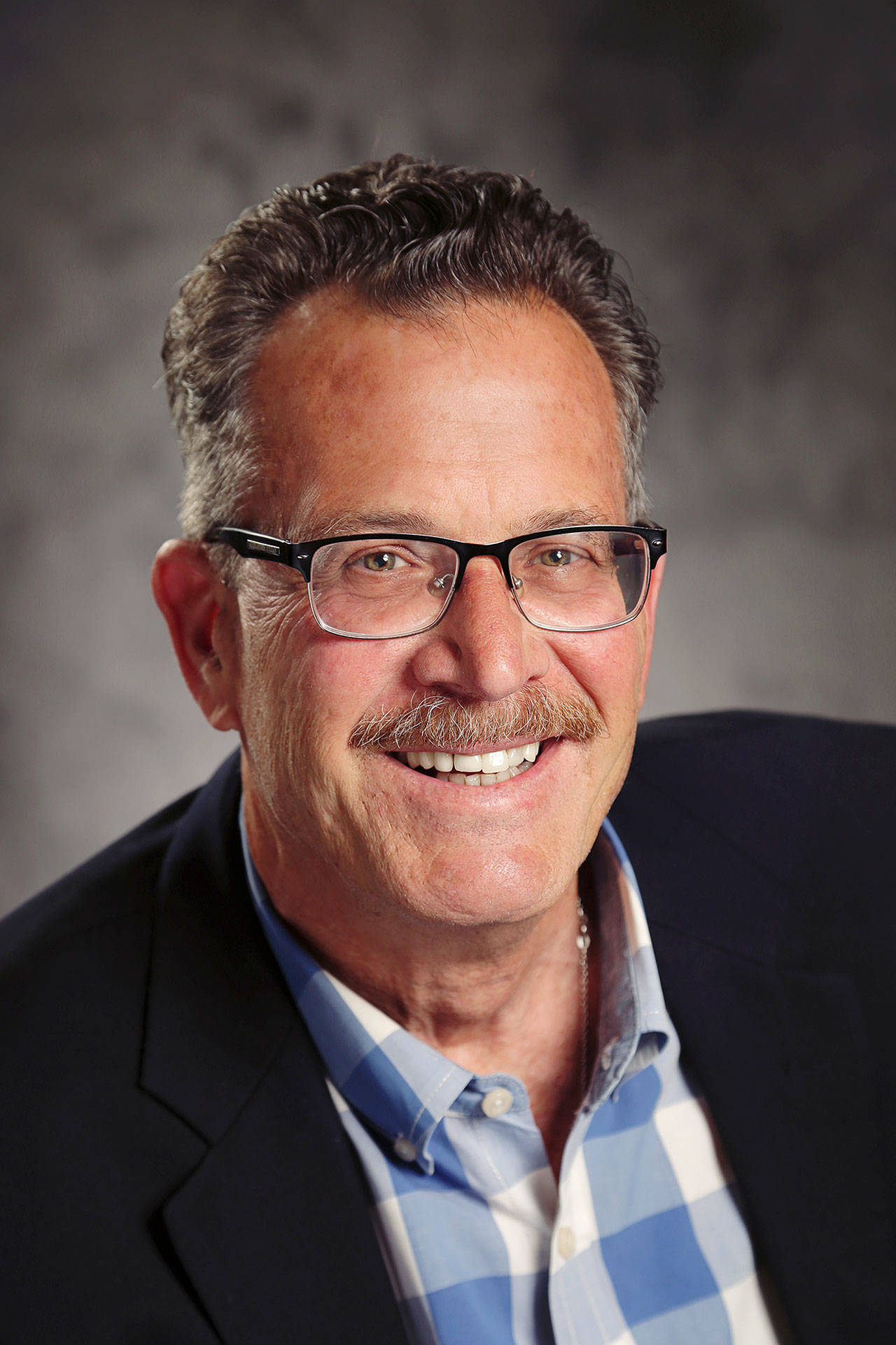Though he personally sent an invoice, Langley Mayor Tim Callison said Monday he never intended to force the newspaper to pay for speaking with the city attorney, that it was all a big misunderstanding.
In a telephone interview, the mayor said that by the time he billed the newspaper last week he’d already gotten the city attorney to waive the fee and was just trying to make a point. If the newspaper had just called him for an additional interview after receiving the bill, it all would have been made clear, Callison said. “If we’d have talked, I’d have said I was just doing it to get your attention.”
“It was a bill to me, it wasn’t a bill to you,” he added. “I didn’t say the South Whidbey Record should pay this.”
Last Wednesday, the mayor left a voice mail on a reporter’s cell phone asking for the newspaper’s billing address so he could send an invoice to The Record for time a reporter spent speaking with the city attorney. The reporter called Callison back shortly after. The mayor reiterated his request for the newspaper’s billing address and remarked that the attorney’s time isn’t free.
The following day, he emailed The Record a copy of the city’s invoice with the following statement: “Pleas [sic] find attached the bill for contacting the City’s Attorney on February 9, 2017. Please remit the amount of $64 to the City.
“As a reminder, the City Attorney works for the City of Langley and is not a free public resource,” Callison wrote in his email. “Additionally, as our Legal Firm, there is a Attorney Client Privilege in place that prevents disclosure of discussions between the City and them as our Legal Representative.”
“We’re pleased that the mayor of Langley has changed his position on billing the newspaper to contact a city-paid employee with questions on issues of interest to the public, but there remains the underlying issue of why this occurred,” said Keven Graves, executive editor and publisher for The Record. “While the mayor’s reasons have changed, I believe the bill was sent to penalize the newspaper for taking an editorial stand the mayor did not agree with.”
“Frankly, how many bills has the mayor personally emailed on behalf of the city?” Graves asked. “The mayor now says it was to get the newspaper’s attention.”
“In that endeavor, he was certainly successful.”
The Record’s article on Saturday about the request for payment exploded online and was quickly picked up by TV news and regional daily papers. On Monday, Callison said he regrets not being more clear with the newspaper in his earlier messages and in his email with the bill attached.
“In hindsight, my [subject] headline would have been, ‘Can we talk about this bill from the city attorney?’” Callison said, adding that he’s still a new mayor — he was elected in November 2015.
“I’m going to make dumb mistakes because I’m new at this,” he said.
Callison released a letter to the editor on Sunday responding to The Record’s story. It was included in regional news reports, emailed directly to Langley residents on a city email list and posted on Facebook, including on the mayor’s personal page.
Callison’s letter did not mention a “misunderstanding,” nor that the intent was to not bill the paper. Callison said in his letter the city is obligated to charge The Record because, to not do so, would be a gift of public funds.
“The city treasurer received an invoice for the time the attorney spent with the reporter, and knowing it was not pre-approved, questioned it. As is her fiscal job to do,” Callison said in his letter. “To not collect the charges would be an illegal gift of public funds. She has been working in the city for 24 years, and said in all this time, the city has never been invoiced by an attorney for work hired by an outside company — newspaper or not.”
The city attorney, Mike Kenyon, of the Issaquah-based law firm Kenyon Disend, is Langley’s council-approved city attorney. But, like many small cities, he is a contract worker and bills by the hour.
Langley’s annual legal budget for attorney fees is capped at $50,000.
The mayor’s letter also stated that the reporter asked multiple questions, getting answers to some, but not to others. In fact, the reporter asked a single question in a voice mail and asked that Kenyon forward to him the recommendation that he provided to city hall on the controversial sanctuary city proposal.
In his emailed reply, Kenyon declined to forward the recommendation.
“Thanks for the call, but I’m sorry to report that I don’t have any non-privileged written material prepared on this issue,” Kenyon wrote.
Kenyon included the time spent on the exchange in the city’s next billing invoice. Callison then sent the tab to the paper with a request to pay.
Callison said Monday he only wanted to make it clear to newspaper staff that speaking with the attorney is expensive. He asked that, in the future, the newspaper pose questions first to officials at city hall. He noted that it wasn’t to obtain permission, stating that the media and public can contact the city attorney if they like, but that it might avoid pricey and unneeded exchanges. Salaried city staff may be able to answer the questions.
“I just ask that you ask the city first,” Callison said.
Callison said he plans to request the city council OK a budget amendment with a line item for “media relations,” which would provide Langley with an official way to pick up the tab for time the press or public speaks with the city attorney.
Without it, further “unsanctioned” interviews would be a gift of public funds, he said.



